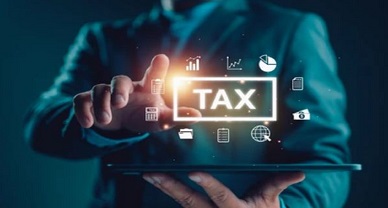The Impact of Goods and Services Tax (GST), on Online Gaming and Horse Racing Taxation; Navigating through Turbulent Waters
Introduction
The GST Council in the meeting conducted earlier this year, announced a raise in the taxation of Online Gaming and Horse racing from 18 percent tax slab to 28 percent tax on the “face value”. The council with majority support over the decision, decided to make it law in force from 1st of October. There were several contentions from the states of Goa, Tamil Nadu, Sikkim and then Delhi, which were dealt with in the meeting considering the general consensus of the council that it had spent enough time analysing it.
Conflict of Interests
The word ‘face value’ has got more depth and meaning to be interpreted, in the sense, the process of taxation would not be as same as last time. Usually the 18 percent taxation would be on the GGR (Gross Gaming Revenue), in simpler terms the amount wagered deducted from the winning payout. The central government tax of 18 percent on GGR would only allow them to get 8 to 9 percent of the stakes which the GST Council doesn’t think is enough for the centre. Thus the centre chose a radical taxation of 28 percent on full face value, which means the government’s tax on a 100 rupees wager would be 28 rupees and the tax would be only on the amount wagered.
The ministers of Goa and Sikkim who have vested interests on the tax amount, welcomed the raise in tax slab but contested against the taxation on full face value but rather on the GGR. The minister of Delhi raised an issue that the new taxation detriments the growth of online gaming start-ups and commented the new taxation as “retrospective taxation”.
On the other extreme, the state of Tamil Nadu which had banned online betting and games like rummy had raised whether change in the new taxation would affect the law existing?
Gurdeep Singh Sachar V/s Union of India
The term “game of skill” has been interpreted by the court to mean a game that is predominantly based on skill, than chance. Thus in the R.M.D Chamarbaugwalla And Another v. Union Of India And Another Supreme Court Of India cases the court concluded that gambling does not fall under trade and is therefore not protected by Article 19(1)(g) of the Constitution.
[Image Sources : Shutterstock]
The Punjab and Haryana High Court unequivocally stated that success in Dream 11s Fantasy Sports primarily depends on users application of knowledge, judgment and attention showcasing their skills. As per this interpretation their fantasy games are exempt from provisions under section 18 of the 1867 Act. The court also affirmed their protection guaranteed by Article 19(1)(g) of the Indian Constitution.In a three judge bench ruling the esteemed Apex Court declared that “horse racing” is not considered gambling but a game of skill than mere chance.
Their Online Fantasy Sports Gaming offerings are recognised as games on skill rather than chance and are thus not subject to Rule 31A(3).The Punjab and Haryana High Court explicitly determined that these games qualify as skill based activities than being dependent, on chance.
Section 7 of CGST Act outlines the extent of what constitutes ‘supply’. Hence the activities listed in Schedule III of the CGST Act are exempt, from taxation as they do not qualify as either the provision of goods or the provision of services. Post amendment, its now being added in the third schedule impacting the tax amount yield.
Negotiations and Agreements:
The financial minister, Smt. Nirmala Sitaraman had answered these questions earlier this year when the majority council agreed upon the proposal. The finance minister said that there would be no differentiation between online gaming and betting in accordance to game of skill and game of chance but purely on the stance of taxation as it yields to a value or a profit from a wager. With the passing of this new taxation, there will be a amendment in the term of “actionable claim”, in the schedule 3 of the GST act which will include online gaming and horse racing along with betting, gambling and lotteries.
The state of Goa and Sikkim’s contentions were taken into consideration but was not accepted. The finance minister emphasised that taxing 28 percent on GGR still won’t fulfil the need of the central government, it would merely get a 11-12 tax. The finance minister said there can be some concession on the process after 6 months of the new taxation in force only after consideration of the Council.
With the issue raised by Delhi’s Finance Minister, which was answered by Mr. Sanjay Malhotra, the Revenue secretary. He answered that there were no retrospective law or taxation. The law which existed pre hand and the companies that got taxed attracted the 28 percent slab through betting and gambling which existed even in the previous law.
The Finance minister clarified the doubt of Finance Minister of Tamil Nadu, answering that the language that’s going to frame the law would be unambiguous and clear about the states that has banned Betting, Gambling, Online gaming and Horse racing and would not have to pay tax for the same.
Conclusion
It is only fair that the Government seeking a bigger piece of tax from one of the most profitable and growing Industry in India. During IPL, the downloads of dream 11 fantasy gaming rose upto 160 million active users. The fact that Court differentiating Online gamings as a game of skill, not a game of chance in the case of shri Varun Gumber vs UT of Chandigarh and ors yet taxing it in the highest tax slab should be reconsidered. Share market is a similar concept where the person gets to make an informed decision not knowing the outcome, similarly online gaming cannot be considered a wager because the outcome is not known. GST council’s enforcement of new taxation has been creating commotion amongst the start up owners of fantasy gaming. Even a month before the law was enforced, couple of fantasy gaming sites have gone down and major leagues like Dream11 have instituted a mass lay-off of employees. The Government has to reconsider the issue in hand, discuss the issue arbitrarily with the major start up owners and find a solution that’s in consensus and advantageous to both the Government and the New start ups, hopefully in upcoming 6 months meet of the council.
Author: Athi Venkatesh, A Student at NMIMS school of law, in case of any queries please contact/write back to us at support@ipandlegalfilings.com or IP & Legal Filing
References:
- Rupin Chopra, New GST Implications On Online Gaming Industry- India – Tax Authorities – India, Welcome to Mondaq (Dec. 23, 2022), https://www.mondaq.com/india/tax-authorities/1264364/new-gst-implications-on-online-gaming-industry–india (last visited Oct. 13, 2023).
- Home Page of Central Board of Indirect Taxes and Customs, https://old.cbic.gov.in/resources//htdocs-cbec/press-release/Press_Release_7th_GST.pdf (last visited Oct. 13, 2023).
- GST on online gaming, horse racing, and casinos to be applicable from Oct 1, 2023, Business Today, https://www.businesstoday.in/latest/economy/story/gst-on-online-gaming-horse-racing-casinos-to-be-applicable-from-oct-1-2023-401104-2023-10-07 (last visited Oct. 13, 2023).
- SHRI VARUN GUMBER VS STATE OF KARNATAKA
- RMD CHAMARBAUGWALLA AND ANOTHER VS UNION OF INDIA AND ANOTHER
- GURUDEEP SINGH SACHAR VS UNION OF INDIA



